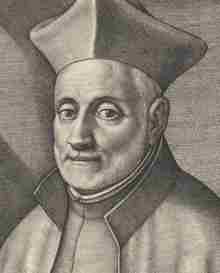SelfDefinition.Org
Monita Secreta
Secret Instructions of the Jesuits
alleged: Claudio Acquaviva (1543-1615)
1835 edition by Robert Breckenridge

Chapter 5
How to act towards religious orders, which perform the same functions in the church, which we do.
I. These men should be met firmly; and at the same time, it is to be explained and demonstrated on a proper opportunity, to princes and others, who have any authority, and are at all attached to us, that our society contains the perfection of all orders, excepting their cant and external asperity of life and dress; and even if any religious orders should excel in any thing, that even in that, this society shines in a more eminent manner in the church of God.
II. Let the defects of other religious orders be inquired into and noticed, which being gradually pointed out and published to our faithful friends, but prudently and with the appearance of sorrow; let it be shown that they discharge these duties in which they concur with us, less happily than we do.
III. That greater opposition should be made against those who wish to establish schools for the education of youth in places, in which we instruct with honor and usefulness; let it be shown to princes and magistrates, that such would lead to commotion and sedition in public affairs, unless prevented, which will begin with the youth themselves, who are instructed in such diversity of manners; and finally that this society is best able to educate youth.
IV. And if those religious orders should obtain pontifical letters, or should have for themselves the recommendation of cardinals, we must oppose them through princes and noblemen, who should inform the pope respecting the merits of this society, and that youth can be peacefully instructed by it with sufficient ability; and also let them procure and exhibit testimonials from magistrates, given respecting our good conduct and instruction.
V. In the meantime let us diligently study to give a striking example of virtue and learning, by exercising the students in their studies and in other popular scholastic performances, before noblemen and magistrates, and the people as spectators.